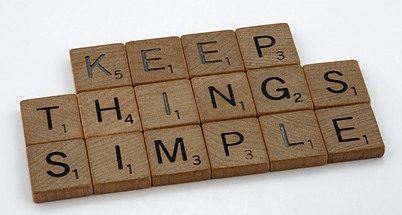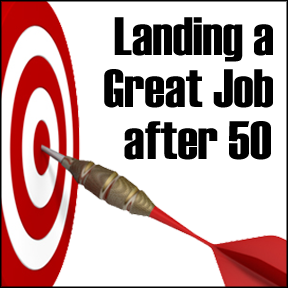Constructing a well thought-out and well-written resume, you could get the job you want, so it is important that you want to find a way to guarantee your work experience is presented great!
As an older job seeker, you should recognize that the experience section is an important part of your resume. It needs to be clear, well-defined, and structured; but done in a way that DO NOT put too much emphasis on your age, but on your experience and the skills that you bring to the table.
With decades of experience, there are many ways to demonstrate your work talent and minimize the emphasis on your age.
In this article, I will explain why the work experience on your resume is important, what to include in the experience section, how to highlight your many years of experience without putting too much emphasis on age.

Why Is Work Experience on Your Resume So Important?
Including your work experience on a resume matters because it helps employers gauge the skills, experience, capabilities and notable achievements. It also will show them what you would be bringing to their company (not just the role you are applying for but, you can show how much of an asset you can be overall to the team and/ or organization).
Your experience and background also helps recruiters compare you to other applicants.
While every part of your resume is vital, your background and experience shows the potential recruiter/ employer more about your career path, achievements, contributions, skill-set, and that you have the qualifications to be an asset to their organization – that could possible span beyond the role that you are pursuing.
Example: In one role that I was applying for years, back (Corporate Controller) the employer saw that I also had operational, warehousing and inventory experience. That employer was smart enough to see that not only could I solve their financial organization’s issues and fix the accounting of the company but, I was also able to help reorganize its twelve warehouses and inventory issues.
It was a win-win for the company and me, the company was able to solve a few pain points with one hire and I got the job!
In most cases, potential employers turn to the experience section first to measure whether you are the right person for the job, and they probably will even grade you (strengths and weaknesses) against other applicants. This is exactly what you want them to do, as it takes the focus away from how old you are, to what a great fit and mentor you could be to the overall organization.
Many recruiters and employers look to the description of your work experience as the most important part of the resume.
It gives them your employment history, the potential employer will most likely read the work experience section first…as this will help them cut to the chase and narrow the pool of candidates.
Make sure you are easily outlining your work experiences and background on your resume, clarity is vital, as it gives you a competitive edge over the other candidates who may not take as much care. While it is important that you be thorough, do not get to wordy, which will only make you’re resume overly long and maybe even BORING to read.
You want to keep the reader engaged, and eager to call you in for an interview.
Like a great book cover, or a trailer for a new movie, excite them with your vast background, show them your value, show them how you will be an asset to the organization; BUT do not tell the entire story.
Save that for the interview.
What to Include in a Resume Experience/ Background Section?
The resume experience section provides detailed information about your work history, including job titles, job descriptions, and achievements.
Quantify your accomplishments by using numbers, percentages, and dollars earned or saved, and do not be vague with “soft” descriptions.
- Instead of saying that you improved sales, say that you increased sales by $1,000,000 from x-Date to y-Date, which was an improvement over the past years’ experience by 65% year-over-year.
- Instead of saying you improved the financial reporting process, say that you decreased the days to close the books from 25 days to 10 days, which resulted in publishing the financial results to senior management faster and directly providing them monthly performance data needed to make informed decisions.
- Instead of saying that you globalized IT, say that you reduced the number of disparate systems globally from 10 systems to 6 unified systems, thereby reducing license fees paid year, saving the company money (list the actual dollar amount you saved), and also reduced training and maintenance costs (again list the dollar amount) year-over-year.
Do not just jam a bunch of past jobs into an Experience section, collect all your work histories and list your experiences over the years – for every job position, make sure you include all these elements:
- Job title
- Company or employer name
- Location: state, city, or if you have experience working remotely (this has become very important since more companies are moving to remote or hybrid (combination of working remotely or in an office a few days a week).
- Dates of your employment, from your start to end date
- Details of your contributions and accomplishments
How to Display Your Experience of 20 or 30+ Years in a Resume?
When writing a resume, you might be tempted to include every detail about your past roles, achievements, and expertise, again as mentioned above, excite but do not give away the entire story. Save that for the interview.
Here are some steps you can effectively highlight your many years of experience:
Include Detailed Relevant Info: Write specific information about your previous posts in detail. For instance, write the complete and official names of the companies you worked for, the location of the companies, employment dates, and job titles.
Format the Work Experience Section Properly: Write a brief introduction for every position or a bullet-point list outlining your responsibilities. List every position and explain your contributions and achievements (see above for some examples). Detail your work history in reverse chronological order, meaning the most recent post you have held should come first.
Keep the professional experiences relevant to the specific role you are applying to and include statements targeting those potential jobs. However, keep it to only about three or four points per job for the work history. Use action verbs, such as saved, spearheaded, and implemented, to peak the hiring manager’s curiosity.
Walk the walk, DO NOT just talk the talk: Whenever you write about your accomplishments, always show how you achieved your goals with measurable results. For instance, writing “I helped my previous organization make more sales” sounds shallow. Instead, quantify your results like this, “I helped my team members achieve 4.5% productivity which led to an increase of sales by 14%.” Direct these to the specific job you are applying to and make them relevant.
According to a recent report, more than 60% of recruiters prefer candidates who have customized their applications to the specific job and company. When you have done great work during a long and successful career, stick to the facts, the accomplishments, rewards and the positive outcomes and NEVER lie.
It will come back to haunt you.
These are things that are to your advantage, and something that your younger, less experienced competition cannot match nor compete against. Create a new resume for each application you send to tailor it to each specific opportunity.
Stick to the K.I.S.S. Principal
KISS stands for Keep It Short, Simple… Other variations are Keep It Simple and Straightforward or Keep It Sweet and Simple.
The basic meaning is to keep things simple; you never want to over explain anything.
When you include excessive information, the section will become overwhelming for the recruiter to read and distract them from relevant, recent information. Make sure you make your bullet lists easy to read and concise.
Brief information can tell a lot about you while still showing your relevant skills and expertise, as many recruiters do not have the time to go through packed resumes with many details when they have hundreds of applications to sort through.
Try to avoid grammatical errors because your resume is reflection on you and will show potential employers how much effort you put into writing a great resume tailored just to them. Grammatical mistakes will give the impression that you are inattentive to details or lazy, so always make sure it is professional.
Have someone other than you proofread it to make sure it is clear, easy to read and accurate with no spelling errors before sending it through.
Amazon has many amazing books, programs, and training materials that you can use in your job search – here are some tremendous materials and additional resources available to you at Amazon!
Conclusion
Writing a resume of more than 20 years’ experience can be a daunting task, especially when you do not know where to begin or what resources to use. Focus on the challenges you have overcome in your career, as most use this to determine how you will help them if they should hire you; describe an occasion where you helped solve a crisis, problem, or challenge to demonstrate your capabilities and skills.
While no one resume will (or should) fits all needs of every job seeker, the above tips are key and will help you put together a GREAT resume that will get you noticed for your skills and not your age. We all can use a professional helping hand every now and then, and if you’re looking for a leading experienced professional resume writing service, then you will be in good hands with TopResume’s professional writers. Their team of writers has expertise in more than 65 industries and includes certified career coaches, recruiters, and experienced hiring professionals.
Is there a question you need answered or something I can help you with?
This site’s success will hinge on me helping you solve problems. For those of us over 50, we face more challenges than others younger than us when competing for jobs and getting doors to open.
I invite you all to share your stories of challenge and successes. We all can learn from those who have faced the same challenges. The idea here is to help and be helped – so please add your comment or insight!

Application writing can be a task in itself. You must sell yourself to our employer, try not to boastful or be overwhelming. Remember self praise has no value. You should be able to identify you qualification you have gain from your past organization and what you can contribute to your potential job
Hi Diana…
You are so right. I am going to assume that you mean writing an “Application Letter” and not just filling out a job application — which as you probably know, asks some very specific and static questions that are mostly HR related and is NOT an Application Letter.
Typically, a Cover Letter contains information that directly relates to the resume which is typically attached with the details of their work experience history and skills – so a cover letter is used to enhance the resume.
At first glance, an application letter and a cover letter look similar, which they are – sort of. However, application letters are typically longer, contain more details, and go deeper about why they are applying for a position since applicants do not include a resume with an application letter.
In an application letter, it is super important that you provide much more extensive information about your work experience, education, skills and professional goals since a resume usually is not sent with an Application Letter; and those are the two main differences.
One, an Application Letter is much more detailed and needs to have a personal touch by providing more details about your background and interest in the position, and two a Cover Letter focuses on your professional skills and experience and work history and is sent with a resume which contains all the details of your work history.
Thank you again Diana for your comment and feedback. Please let me know if you have any other comments or feedback.
-Mike